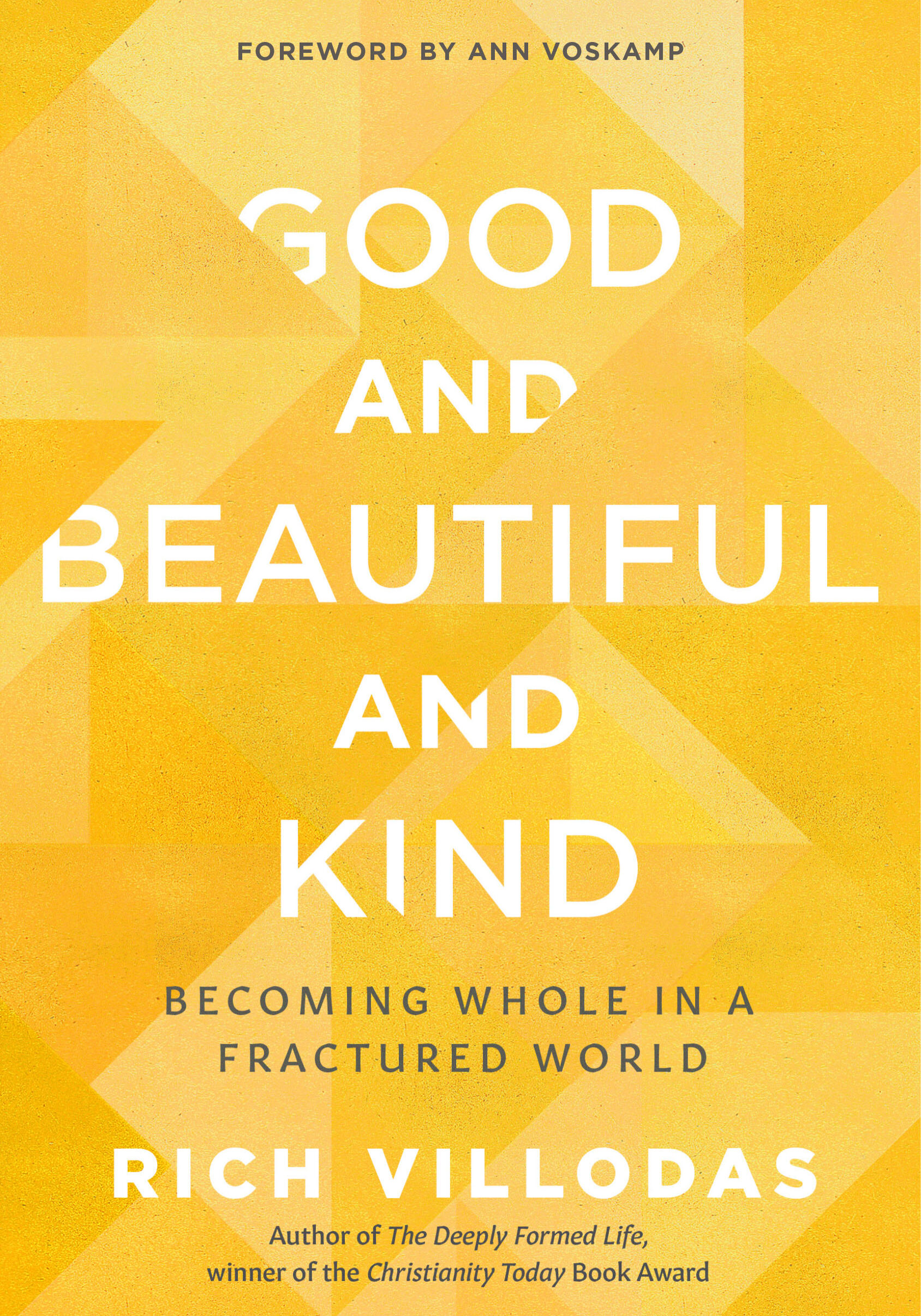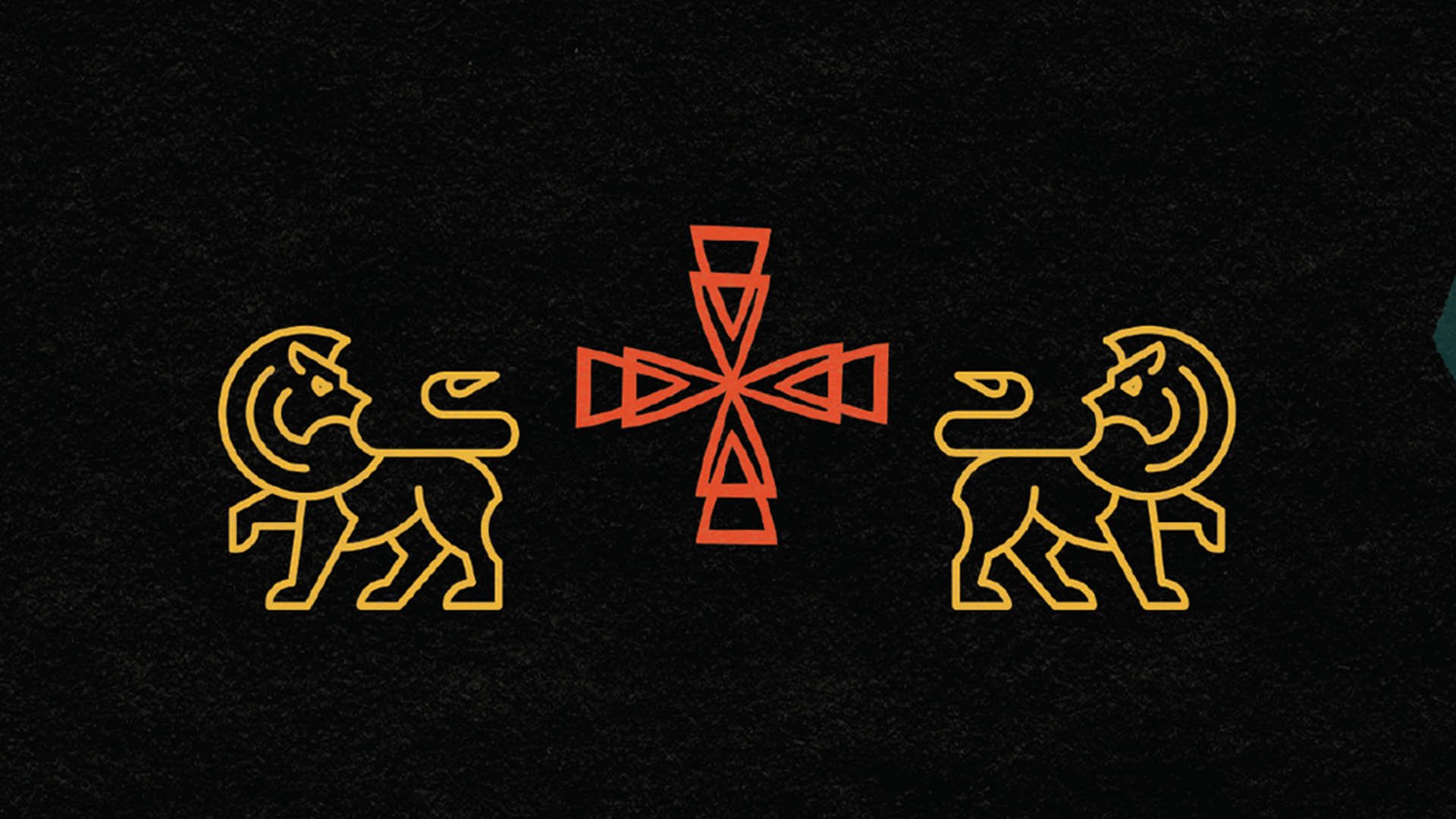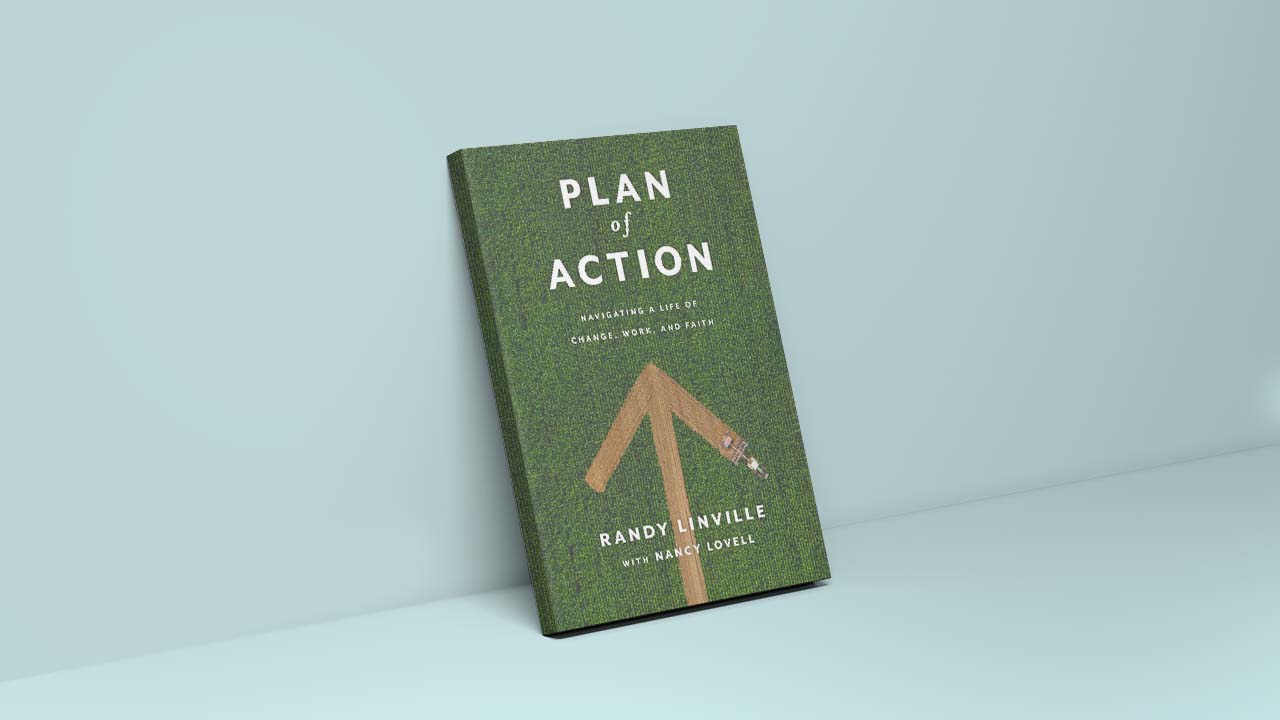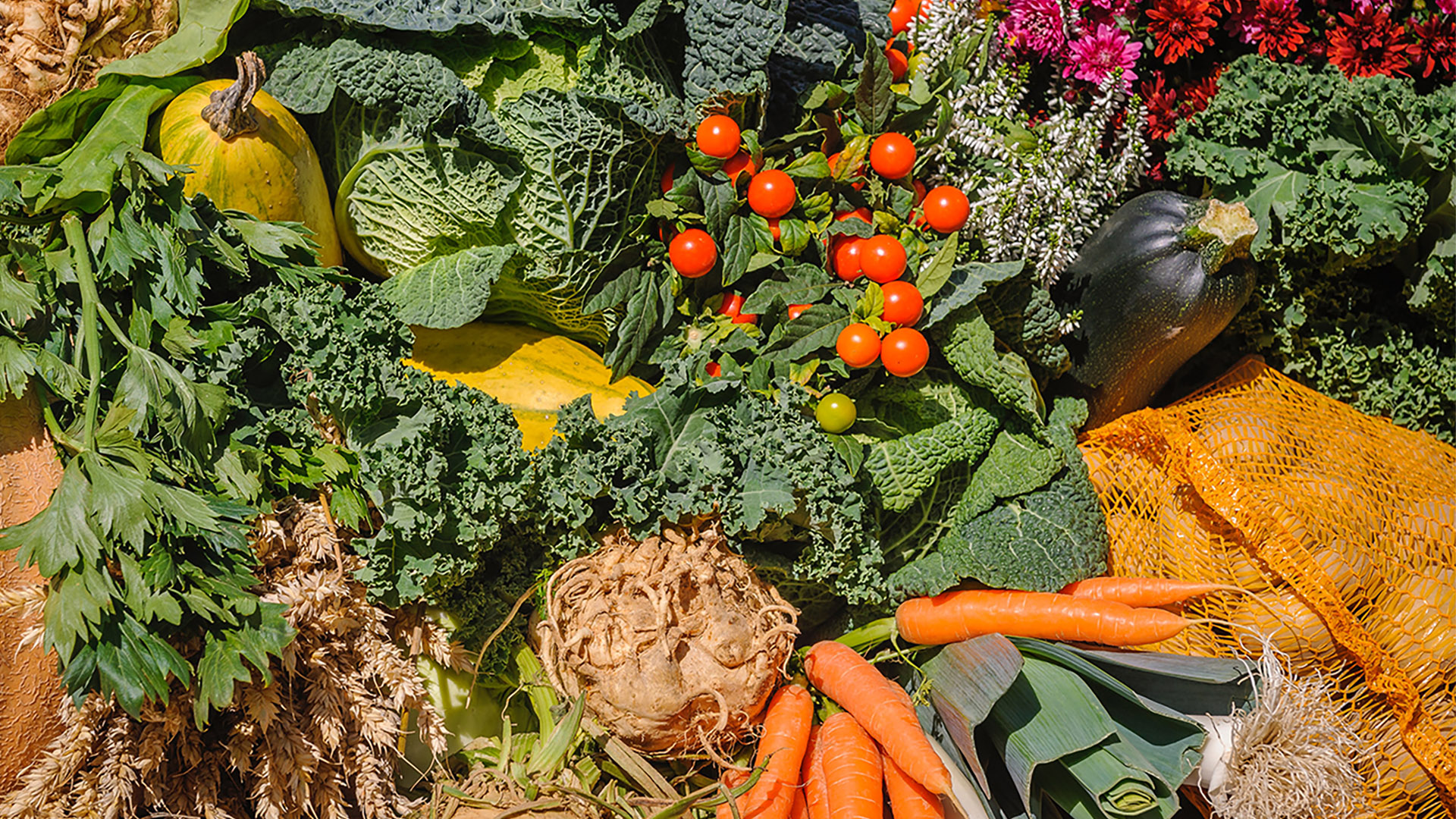
It seems like a paradox, a native-born New Yorker and Brooklynite, preaching about silence and solitude, but Rich Villodas has emerged as a contemplative voice extolling monastic virtues from a pulpit in the middle of Queens. Villodas is the lead pastor of New Life Fellowship, a multiracial, multi-generational church in Elmhurst, Queens, where he’s pastored since 2013, taking over from former lead pastor Pete Scazerro, author of the popular book Emotionally Healthy Spirituality.
Since then, Villodas has authored two books, A Deeply Formed Life, and his most recent, Good and Beautiful and Kind. His voice is a unique addition to the wider contemplative movement within the American church, a conversation often dominated by white, rural voices from idyllic settings. Villodas’ take on contemplative spirituality takes into account the unique pressures that accompany following Jesus in a large city, offering practical ways to engage monastic rhythms without losing a sense of social location. As a result, his work avoids the divisions that often plague Christian spiritual writing, those that divorce the interior life from issues of justice and equality; instead he offers a praxis of prayer and action, one that is cognizant of today’s social ills and avails itself of those voices that are often marginalized in Christian theology.
In his new book, Good and Beautiful and Kind, Villodas explores the fractures that divide our world, drawing out their origins and implications while also identifying solutions. For him, interior wholeness is a precursor to exterior healing. He writes: “Christianity is about the love of God being expressed through followers of Jesus.” The love he advocates for isn’t trite or saccharine, but rooted in justice, taking seriously the systemic divisions that fracture our world. His writing is pastorally relevant and provides an insightful look at the polarization that dominates our age. Villodas’ new book isn’t just a collection of good ideas about wholeness but is the byproduct of lived experience and pastoral care, providing a necessary framework for those looking for shalom within themselves and the world around them.
Villodas and I talked a few days ago, around his new book’s release.
Ryan Diaz: When I read the title of your book I immediately thought of a phrase we often throw around in Christian circles: the good, the true, and the beautiful. I realize that your book’s title riffs on this idea. But instead of truth, you include kindness, which is a reference to the Langston Hughes poem “Tired.” In a fractured world, it seems that the Christian approach has been to appeal to truth in an effort to pave over these fractures. But what does kindness offer our fractured world that truth does not?
Rich Villodas: Ryan, that’s a great question. I immediately think of what Paul said in Romans about the kindness of God which leads us to repentance. I think starting there, biblically, you could argue is the best approach to take in terms of our witness in the world. In a post-Christian world that’s marked by secularism, beginning conversations with truth is fraught with all kinds of difficulties.
I’m all for the truth. I think we need to live in reality. I think we need to live scripturally, faithfully. But living in New York and being in conversation with people that are leaving the faith, deconstructing, people who are all over the map, there is something about beauty, goodness, and kindness in particular that I think does something to the heart.
How we participate in that kindness has a way of reaching the human heart, that truth from a cognitive, intellectual, and theological perspective may not necessarily reach. What I’m ultimately after is transformation — people being captivated by kindness, beauty, and goodness. Kindness can reach parts of the human soul that a passionate conviction of truth cannot.
RD: I want to talk a bit about the book itself and some of its themes. One of the central ideas found in your book is this idea of fractures, or divisions in our world that are interpersonal and systemic. When you look at the world we’re living in now, what are some of the fractures you see dividing our society?
RV: I think what we see today are various manifestations of the same fractures that have always been there. One of the greatest has been the fracturing of Christian spirituality, a division that’s made between the individual, the interpersonal, and the institutional realities of faith.
I think that one of the reasons there is so much tension and divisiveness here is a lack of Christian imagination. Many Christians who have not made the connection between those three realities have failed to see how the kingdom of God speaks to our individual realities, our interpersonal realities, and larger systemic, institutional realities. Whenever we talk about systemic issues, or institutional sin, a lot of Christians get up in arms. This is partly because they have understood Christianity as having to do primarily with the soul and very little to do with the systems and structures of our society.
Another fracture I see is the gap between the sacred and secular. What can heal that fracture is a sacramental way of understanding the world. The sacred-secular fracture needs a sacramental imagination, and by sacramental imagination I mean that all of what we see is holy and that the holiest work is not simply what happens on Sunday morning, but that it’s just as holy to deliver mail or parent or teach. A sacramental imagination sees that the world is charged with the glory of God.
But the deepest fracture is the fracture that exists within ourselves and between ourselves and other people: our inability to hold space with one another in calm and curious ways. In a world divided along ideological lines, anxiety, and blaming, what would it look like for us to live lives with a calm and curious presence toward others?
RD: When we look at the Christian world, our response to these fractures has often been to call for unity. I found it interesting that you advocate for wholeness and not unity. What are the distinctions between wholeness and unity, and what does wholeness offer that unity fails to accomplish?
RV: That’s really perceptive. One of the reasons why I shied away from using unity, which is ironically a good Christian word, is it is often misunderstood. When we talk about unity, we often only address interpersonal and individual unity. It’s easy for us to say: Let’s be unified. I promise to treat you as an equal in my interpersonal encounters. I promise not to look down on you. I promise to honor you.
But this ignores the larger forces that are contributing to the fractures in our lives.
Wholeness, for me, consists of three things: integrity, integration, and intimacy. This means asking myself: Is there congruence between my inner life and my outer life? Am I moving outside of myself towards others and addressing the larger human realities of our world? Ultimately the goal of wholeness is love, or intimacy. And by that, I mean that we’re called to love deeply. Wholeness ultimately helps us hold together our individual, interpersonal, and institutional realities.
RD: In your book you say that conflict can be a bridge to love. But people often see conflict as the problem. What role does conflict play in cultivating wholeness, and why is it important for us to see conflict as part of the solution?
RV: In many ways conflict becomes another means of sanctification and another means of loving well. One of the hardest things for people in our world to accept is that Jesus places enemy love as the distinguishing reality of the kingdom of God. We see this in the Sermon on the Mount, and we give expression to God’s goodness by loving others in this kind of way.
I actually think it’s unhealthy not to have conflict. To be human is to have conflict not only with others but with ourselves. If that’s the case, then we will certainly experience conflict and tension with others. But conflict is the holy task of wisely, and with integrity, negotiating our differences. It creates space for people to lift up their voices, to name and declare their values, which I think is a great gift.
RD: You talk about being a non-anxious presence, having a calm and curious presence. A non-anxious presence seems to be an important aspect of negotiating our differences. Why is a non-anxious presence vital to the work of wholeness?
RV: I have learned over the years to use that phrase with a particular qualifier. First, to be human is to experience anxiety. Anxiety is an automatic response to a real or perceived threat. I don’t think we ever get to a point where we are not anxious. In certain situations, anxiety is a gift, but there are also certain psychological conditions people have that we need to be mindful of when we talk about anxiety.
I often talk about a non-anxious presence in ways that highlight a calm presence. A calm presence, or a non-anxious presence, is a life no longer fueled by reactivity. It’s the act of remaining curious before God, curious before my neighbor, and curious and calm with myself in times of high anxiety. A calm presence requires the introspective act of identifying our own behavior, asking, Where do I typically go? Do I tend to cut people off or do I disappear into people? And then we must ask why: Why do I do these things?
Many people run from conflict or run from someone because a part of their brain has hijacked their entire being. How do we resist that and live out of principle, informed by the gospel and informed by Scripture and the way of the kingdom of God?
RD: So I have two more questions for you. One is serious, and the other silly (though for me it’s quite serious). Let’s do the serious one first: In the afterword of your book you encourage readers to abide in God’s love. What encouragement can you offer readers as they try to abide in God’s love in the middle of a fractured world?
RV: My answer is two-fold, one is a theological truth and the other is a practice. The reason why abiding in God is so important is because this is the primary place of transformation. The fruit of the holy grows in the soil of abiding prayer. The degree to which we live in God, the degree to which we live prayerful lives, lives that are connected to Jesus, tethered to Scripture, and immersed in contemplation — I think those are the ways that we encounter God and the ways that the Spirit’s fruit is produced.
Secondly, when I talk about the contemplative life, I’m talking about a way of life that practices slowing down to be with God in, I would say, at least four ways: in silence, in Scripture, in creation, and with others. A life of contemplation is a life of loving attentiveness to God, whether it’s found in the Scriptures, in creation, or in silence. As we give ourselves to that, whether we’re praying for five minutes or spending time in stillness and silence, whether we are in the woods or in the city where we’re looking at people and seeing the image of God in them, I think the work of lovingly giving our attention to those things are what it means to abide.
I truly believe in John 15 where Jesus says, “Apart from me you can do nothing.” He’s saying, You’re gonna have a hard time living in wholeness and love without me. Abiding really is a call to follow Jesus.
RD: For my last and final question, given that I’m a Queens kid, a native New Yorker, and a fellow Mets fan, I need your end-of-season prediction. Are we going all the way this year?
RV: Here’s my hot take, especially in light of what I’ve seen in the last two games against the New York Yankees. The Mets are ready to take it all this year, and here’s why. Number one, we have a phenomenal manager and coaching staff. Buck Showalter is the real deal — talk about a calm presence.
Number two, the pitching staff is phenomenal and we’re doing all this without Jacob deGrom. Plus, we have some great hitters, and more than that, there’s a grit to this team. I think in a short series, our team can go up against anyone. I’m usually not this confident. I’m usually very humble and self-effacing, but this year, I think we can go all the way.





